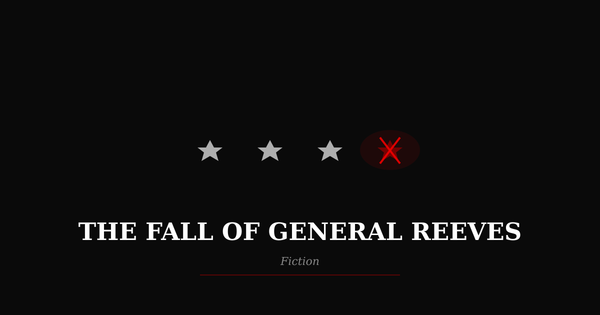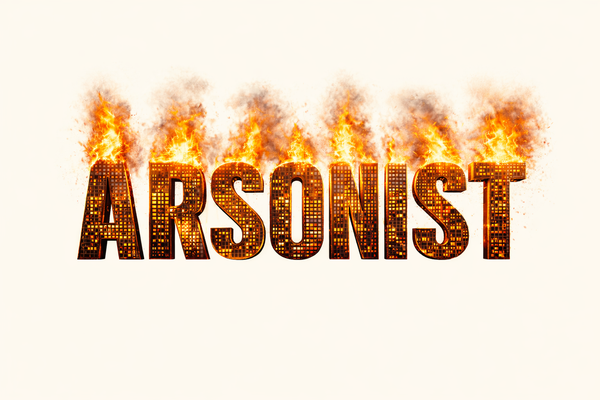The Founders Betrayed

as are we
The Founders Built Impenetrable Firewalls. They Didn’t Plan for Bulldozers.

The Founders weren’t naïve. They knew the danger of charismatic strongmen and a fervent bloc of populist voters—and they designed a system to resist them. Deliberately slow, jammed with friction, and impossible to hijack without bumping into a dozen different checks and balances. That was the plan.
But they didn’t plan for a party so hollowed out and corrupt it would surrender the keys without a fight—or even a question. They didn’t imagine a citizenry this distracted and this ill-informed, scrolling through rage bait headlines and YouTube rants about tyranny while the real thing settles in next door. Outrage is a business model. Ignorance is a weapon. And the people using both know exactly what they’re doing.
The Founders couldn’t have foreseen a media ecosystem so broken it elevates lies for balance and treats authoritarianism like a brand extension. Or a public so worn down by noise and spectacle that it barely notices as the walls close in. The distractions are endless, the entertainment industrial. And while the country scrolls and fumes, democracy is being hollowed out in real time. In the center ring stands a con man who’s turned civic decay into spectacle—who sells collapse like it's merchandize.
Congress was supposed to be the first line of defense. Subpoenas. Impeachment. Budgetary control. But now it’s a performance space. The House is MAGA’s clubhouse, the Senate’s spine is made of pudding. Oversight became fan fiction.
The Electoral College was designed to stop demagogues. That was the theory, anyway. The Founders didn’t trust direct democracy—they feared a charismatic manipulator could whip up the masses and ride chaos into power. So, they created a filter: electors who, in Hamilton’s words, would be “most capable of analyzing the qualities adapted to the station.” Sober men of judgment, immune to frenzy.
The system was meant to block the rise of a tyrant by inserting a layer of elite discretion between the public and the presidency. Instead, it installed one. In 2016, Trump lost the popular vote by nearly three million and still took power. In 2020, he lost both the vote and the map—but tried to stay anyway, pressuring officials, peddling lies and turning January 6 into a blood-red line in the national memory. What was supposed to prevent populist chaos has become a back door for it—an antique guardrail repurposed into a weapon.
The press, meant to expose abuse, became the enemy. Not in fact, but in framing. Trump convinced millions that only he spoke truth and everyone else was fake. The Fourth Estate became just another target in the culture war.
His Cabinet? Supposed to advise him. They mostly flattered him or fled. Those who remained played along while the country edged toward autocracy.
Elections? He broke that too. He declared in advance that the only legitimate outcome was his own victory. When he lost, he called it stolen. He didn’t just undermine faith in democracy—he bulldozed it and started building condominiums on the rubble.
The Constitution? He treats it like a menu. Takes what he wants, ignores the rest. He’s claimed total immunity. Dismissed the 14th Amendment. He says the presidency has “absolute authority.” He acts like it’s already his again.
The courts are our last hope—the final thread holding back what the Founders feared most.
Take what just happened in California. Trump federalized the state’s National Guard and sent troops into Los Angeles, claiming they were needed to protect federal buildings during immigration protests. Governor Newsom objected. He sued. A district judge sided with him and ordered the Guard back under state control.
Then the Ninth Circuit intervened. A three-judge panel unanimously stayed the district court’s order, ruling that Trump likely acted within his authority under an old statute. The court said the governor’s consent wasn’t required—and that the president’s motives were essentially off-limits to serious judicial scrutiny.
So now Trump controls California’s Guard. Marines are on the streets of L.A. under federal orders. The governor’s out of the loop. And the courts said that’s fine—as long as the president says the word “threat.”
This is not hypothetical. It’s not a drill. The president just seized control of a state’s military force. And the legal system—his system—blessed it.
The Founders built what they thought were impenetrable firewalls—layered, deliberate, and slow by design. Trump bulldozed through them like they were suggestions, not structures. And now we’re standing in the smoke, hoping the the judiciary will do its job.
But it’s cracking.
And once it goes, there’s nothing left between a man like PrumpTutin and power that answers to no one—not Congress, not the voters, not the Constitution. Just himself. Or, perhaps more accurately, just himself and whoever’s pulling the strings from the far side of the ocean.
And that, the Founders absolutely warned us about.
Appendix: What the Founders Said About Political Parties
The first betrayal of the Founders' vision came early: the creation of political parties. They warned us—clearly, repeatedly, and with historical memory behind every word.
George Washington, Farewell Address (1796):
“The spirit of party … serves always to distract the public councils and enfeeble the public administration. It agitates the community with ill-founded jealousies and false alarms … opens the door to foreign influence and corruption.”
“Let me now take a more comprehensive view, and warn you in the most solemn manner against the baneful effects of the spirit of party, generally.”
James Madison, Federalist No. 10 (1787):
“A zeal for different opinions concerning religion, concerning government, and many other points … have, in turn, divided mankind into parties, inflamed them with mutual animosity, and rendered them much more disposed to vex and oppress each other than to co-operate for their common good.”
“The instability, injustice, and confusion introduced into the public councils have, in truth, been the mortal diseases under which popular governments have everywhere perished.”
John Adams (letter to Jonathan Jackson, 1780):
“There is nothing I dread so much as a division of the republic into two great parties… This, in my humble apprehension, is to be dreaded as the greatest political evil under our Constitution.”
Thomas Jefferson (letter to Francis Hopkinson, 1789):
“The greatest good we can do our country is to heal its party divisions and make them one people.”





